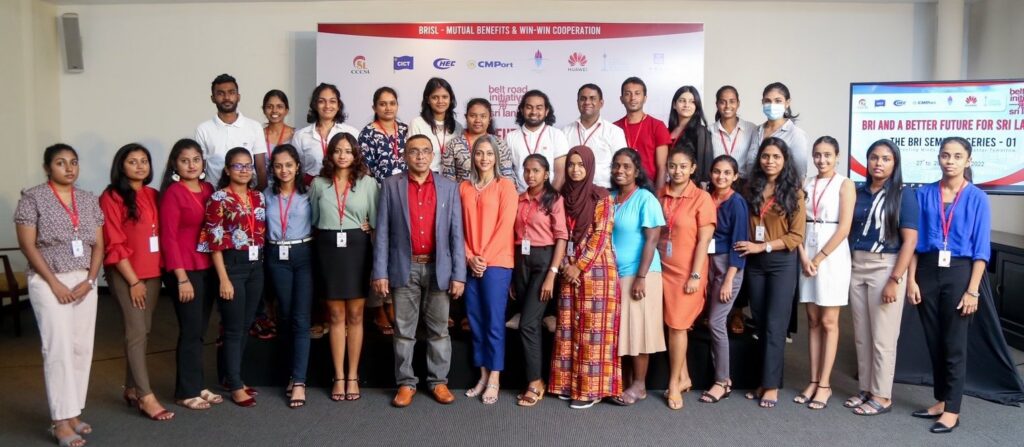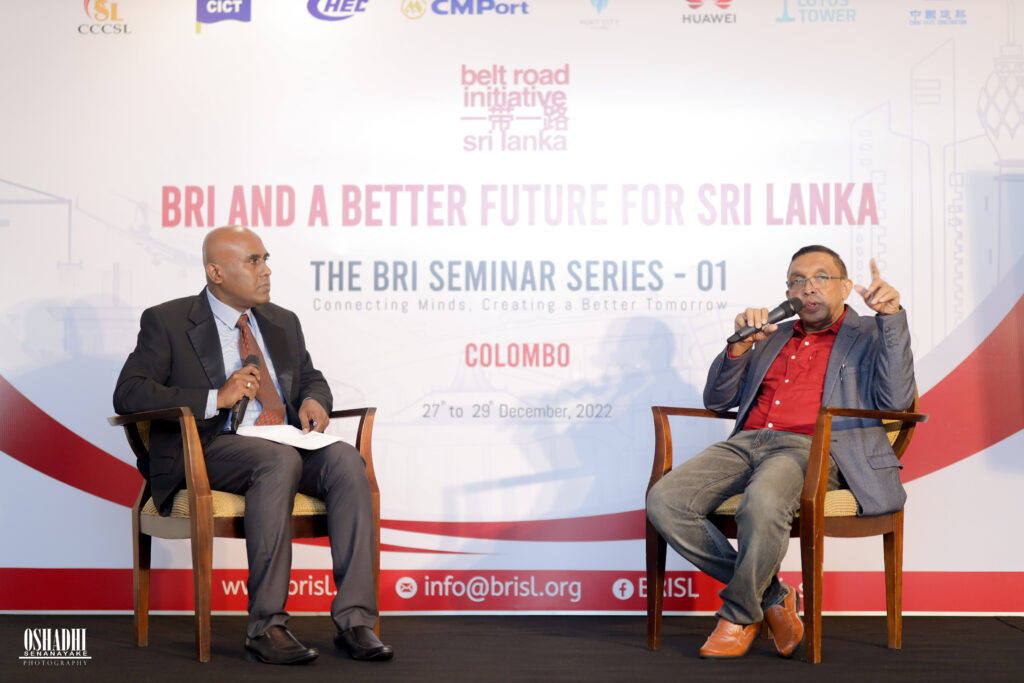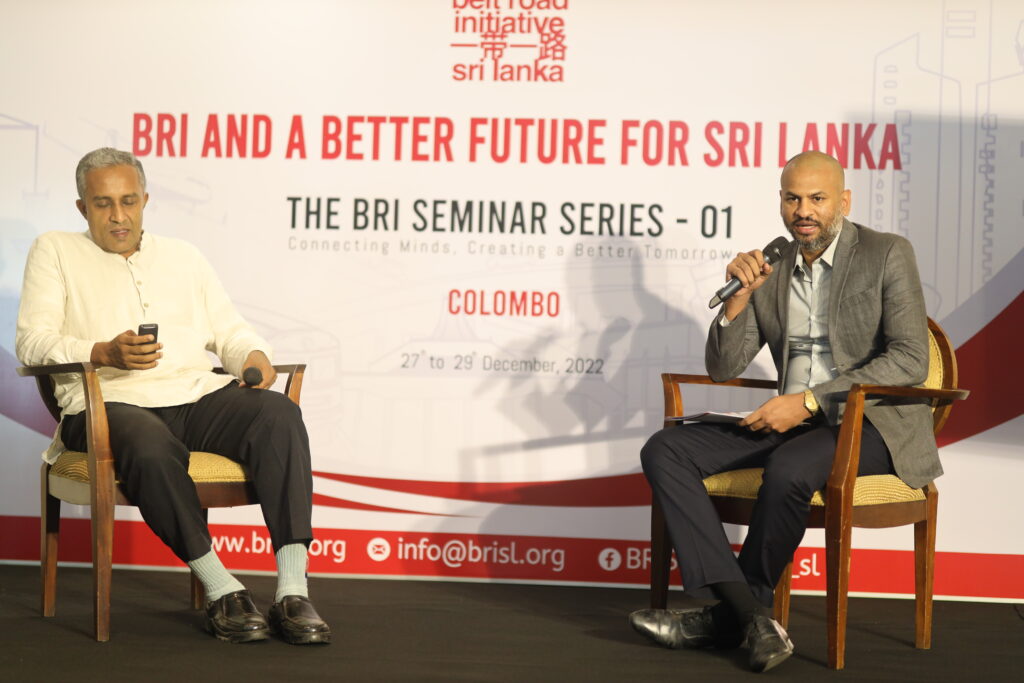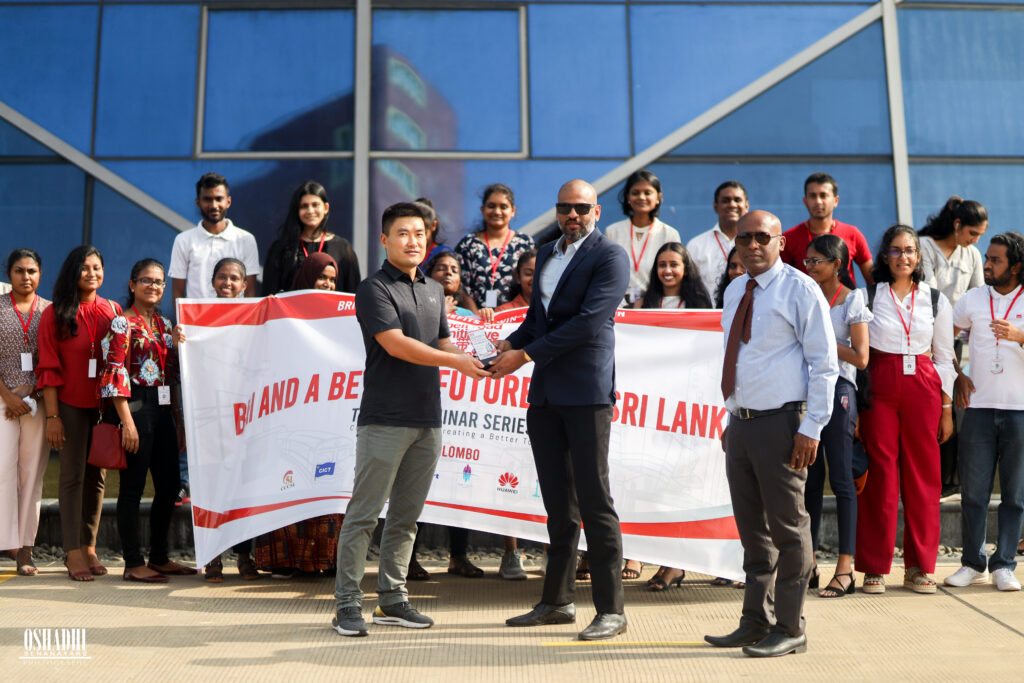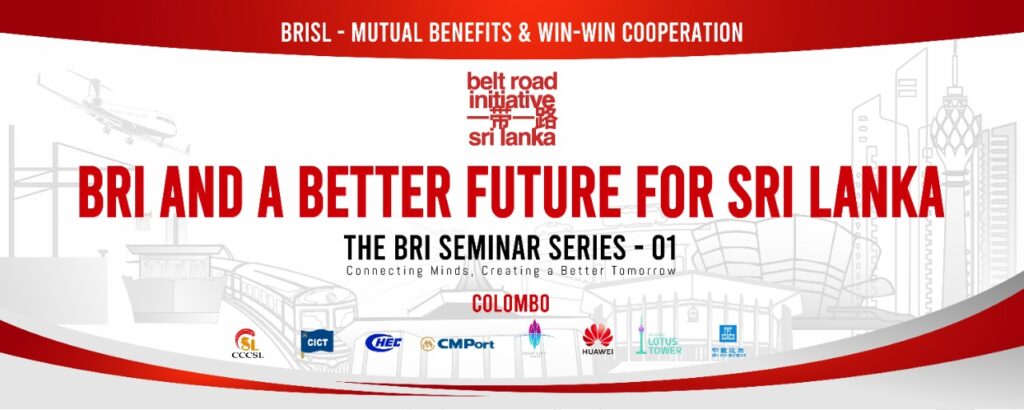The BRI Seminar Series One: “BRI and a Better Future for Sri Lanka”
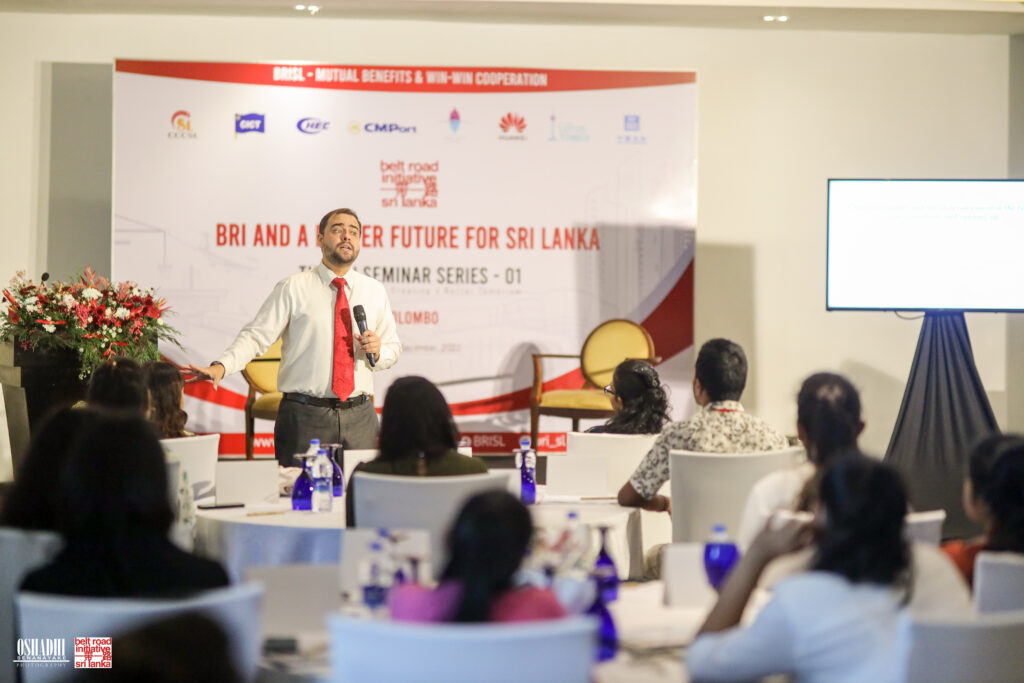
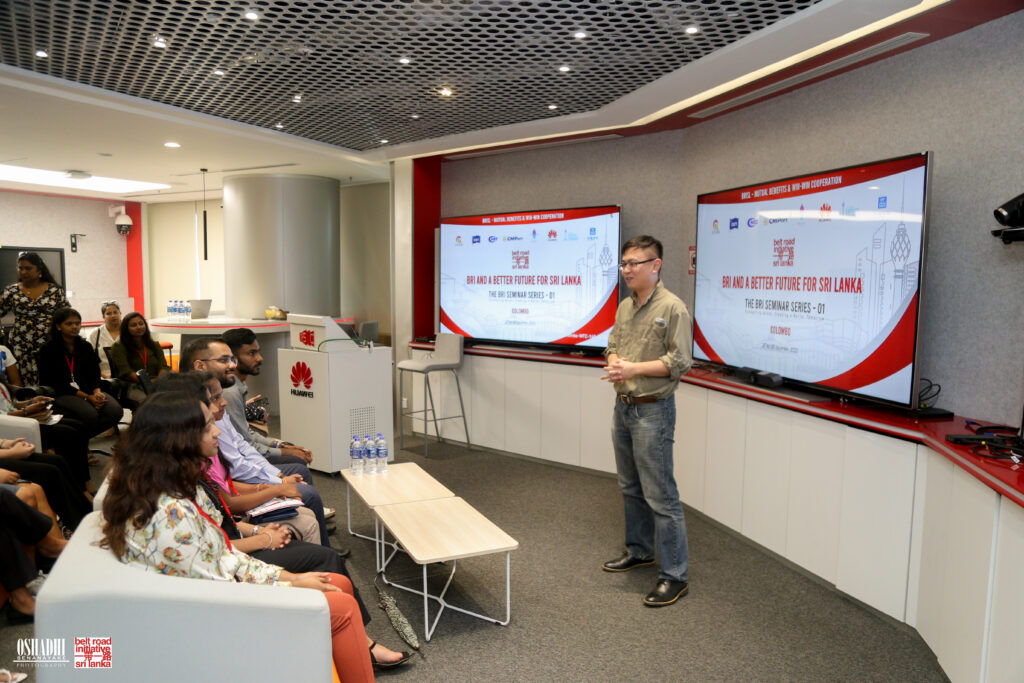
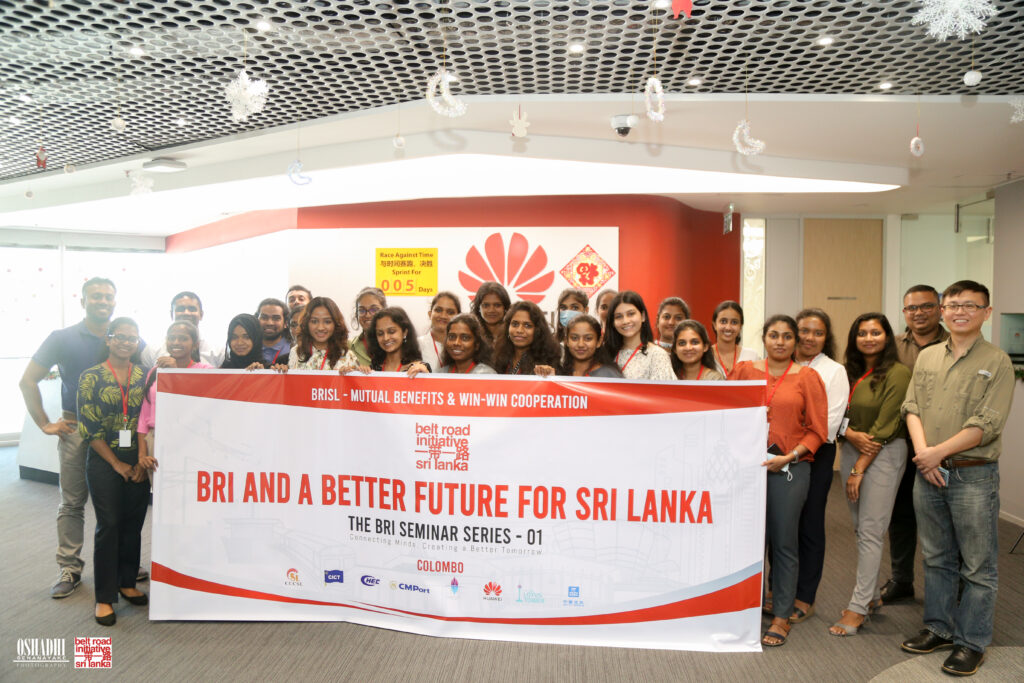
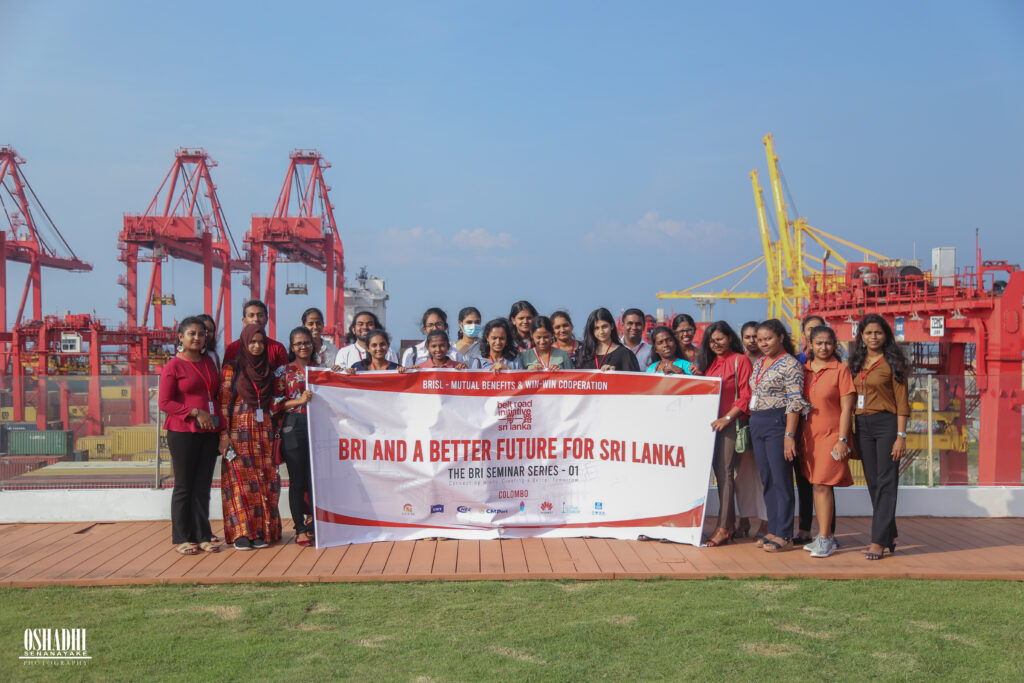
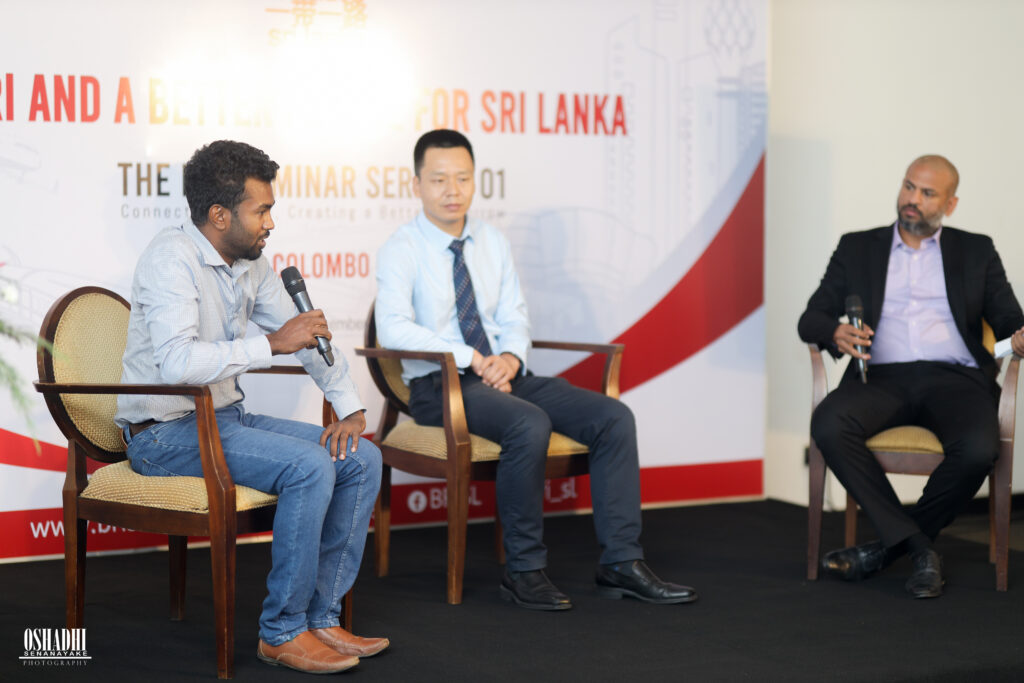
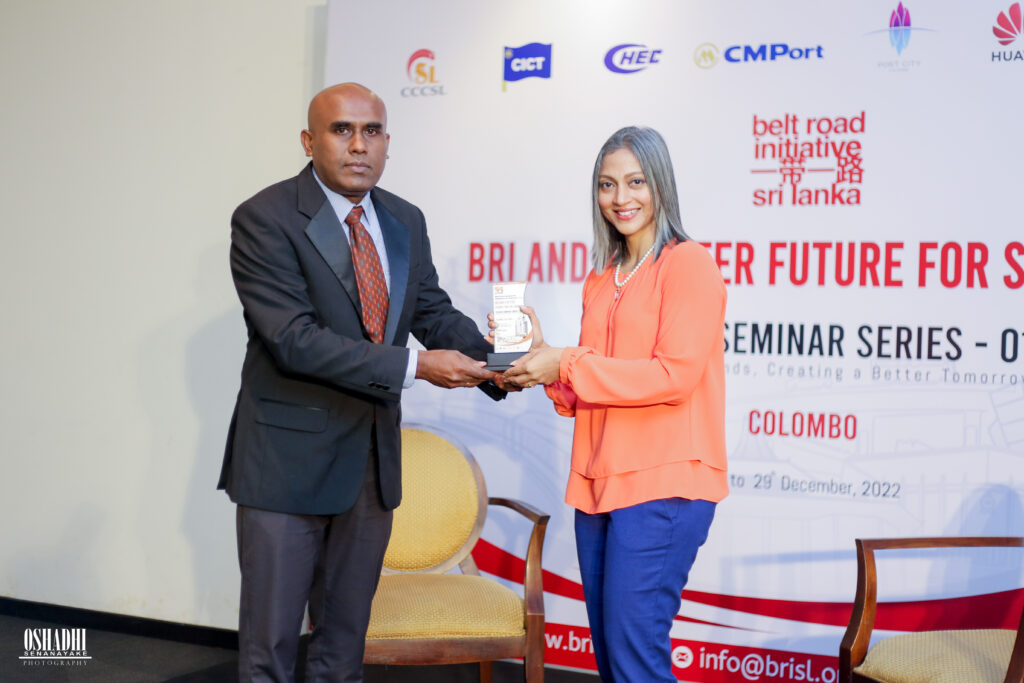
Acknowledging the positive role that the Belt and Road Initiative (BRI) play in the economic development of Sri Lanka, the Belt Road Initiative, Sri Lanka (BRISL) held a three-day seminar at the Galle Face Hotel, Colombo from the 27th to the 29th of December, themed: “BRI and a Better Future for Sri Lanka.” Organised with the objectives of alleviating misconceptions, countering harmful narratives, and enhancing knowledge on BRI and its impact on Sri Lanka through dialogue and deliberation between university students, academia and other stakeholders, the seminar featured presentations and experience-sharing exercises by form of field visits to key China-Sri Lanka joint development projects in the heart of Colombo. Participants were given the unique opportunity to visit project locations such as the Colombo International Container Terminal (CICT) and the Colombo Lotus tower and monitor internal operations that are not open to the public, to better understand the operational dynamics of internationally acclaimed BRI projects, while interacting with senior members of the staff. Further, the seminar provided the participants with an opportunity to acquire an overview of the professional skills necessary for career success in preparation of their employment prospects in the future. The BRI Seminar Series intends to provide a platform biannually for undergraduates representing all regions of the island to critically discuss and form objective viewpoints on the BRI.
The informative seminar was held with the participation of 25 undergraduate student delegates from state universities across the island, including the Department of International Studies, Faculty of Social Sciences – University of Kelaniya, the Department of International Relations, Faculty of Arts – University of Colombo, the Department of Economics, Faculty of Humanities and Social Sciences – University of Ruhuna and the Department of Economics, Faculty of Commerce and Management, the Department of Economics, Faculty of Arts and Culture – Eastern University of Sri Lanka.
Mr. Hu Wei, Chargé D’affaires of the Embassy of the Peoples’ Republic of China in Colombo, greeted the visiting student delegation and hosted a dinner on the 26th of December at the Shangri La Hotel, Colombo. Making his remarks at the occasion, Mr. Wei appreciated the initiative taken by BRISL to bridge the knowledge gap between ordinary Sri Lankans and their perceptions of BRI projects in the island and recognised the need for learned discussions at university and academic levels to improve Sri Lanka’s standing as a key regional beneficiary of the BRI. Mr. Maya Majueran K of BRISL emphasised the importance of the seminar in offering practical experience relating to strategic projects of the BRI to undergraduates. He also invited the participants to study the importance of Sri Lanka being a BRI partner, based on factual information.
The three-day seminar was enriched with the presentations made by key academics and practitioners in the disciplines of international relations and economics, whose analytical and thought provoking presentations and knowledge sharing stimulated rich discussions amongst participants. Day one of the seminar series saw presentations from Prof. Samitha Hettige, Professor of Management and Dr. George Cooke, diplomatic historian and senior lecturer at the Department of International Relations, University of Colombo, who set the foundation for the direction of the seminar through historic evidence of China-Sri Lanka relations.
he presentations unravelled misconceptions of how BRI and China’s investments are seen as a novel phenomenon. Policy Analyst and Economist at the UNDP, Dr. Vagisha Gunasekara and Prof. Sirimal Abeyratne, Chairman of the Stakeholder Engagement Committee of the CBSL and Professor in Economics, University of Colombo, in their presentations on day two of the seminar delved into differentiating between Chinese investments, loans, and grants. The speakers stressed the importance of BRI to Sri Lanka in elevating itself as a key trade partner to China, the equalisation of Sri Lanka’s infrastructure to its regional peers to facilitate trade and the necessity for far-seeing, consistent national policies to better benefit from foreign loans and development projects, while meeting Sri Lanka’s interests.
On day three of the seminar, Mr. Umesh Moramudali, lecturer at the University of Colombo, and Mr. Thilina Panduwawala, head of economic research at Frontier Research, presented their paper titled “Evolution of Chinese Lending to Sri Lanka Since the mid-2000s – Separating Myth from Reality,” in which they established that 19.6% of Sri Lanka’s external debt is owed to Chinese financing entities, a figure higher than often thought to be. However, the paper highlighted that China’s financial assistance and loans to Sri Lanka does not possess any ‘hidden debt’ as often erroneously reported. Making the last presentation of the seminar, Mr. Cheng Huaqiang, Deputy General Manager of the China State Construction Engineering Corporation (CSCEC) – International, South Asia and Mining Engineer Mr.Kanishka Chathuranga gave an overview of how the cooperation has facilitated BRI initiatives in Sri Lanka through building infrastructure while indirectly benefiting local workforce through technology and skills transfer and experience sharing. All presentations were followed by interactive Q&A sessions moderated by Mr. Yasiru Ranaraja and Mr. Maya Majueran K, founding directors of the BRISL. The student delegates actively took part in discussions to pose questions, initiate discussions, and critically analyse the presentations made.
With the view of enhancing practical knowledge and experience sharing, and to learn first-hand the benefits of BRI related investments and projects, the afternoon sessions of the three-day seminar were reserved for field visits. At Huawei Technologies Lanka, the undergraduates were debriefed by Mr. Liam Liang, deputy CEO for Enterprise Business, Mr. Christophe Lee, Director Public Affairs and Communication, Mr. Nadun Gunawardana, Head of Solutions for Enterprise Business and Mr. Sameera Antony, Senior HR Operations Manager, on the technological service provider’s ongoing work to narrow the digital divide in the country and digitise essential services with state and private sector partners. Ms. Nicole Dunuwila, Regional Manager Investment Promotion & Marketing (South Asia) for the Colombo Port City provided a tour of the project facilities and explained the future vision in developing the location to a world-class commercial and residential hub. At the Colombo Lotus Tower, Site Manager, Mr. Jiao Zhichao of the China National Electronics Import & Export Corporation, provided the undergraduates access to the restricted control rooms to witness first-hand, the complex operations powering the tower. Chief Executive Officer of the CICT, Mr. Jack Huang greeted the delegation and shared his expertise on the dealings of the CICT and its strategic value to Sri Lanka with lessons for better integration with state actors for increased trade. The Finance Manager of the CICT, Mr. Don Jayawardene, Mr. Grant Yang, General Manager of the Admin Department and the Deputy Manager of the Commercial Department, Mr. Chandima Seneviratne also provided insights into CICT’s contribution to the Sri Lankan economy. Undergraduate delegates were encouraged to engage with staff to reflect on how future academic and employment prospects could be enhanced, while gaining in-depth knowledge of the operations of each facility and their strategic importance as part of the BRI.
More information can be obtained by writing to info@brisl.org or calling (00)+94 770579277
